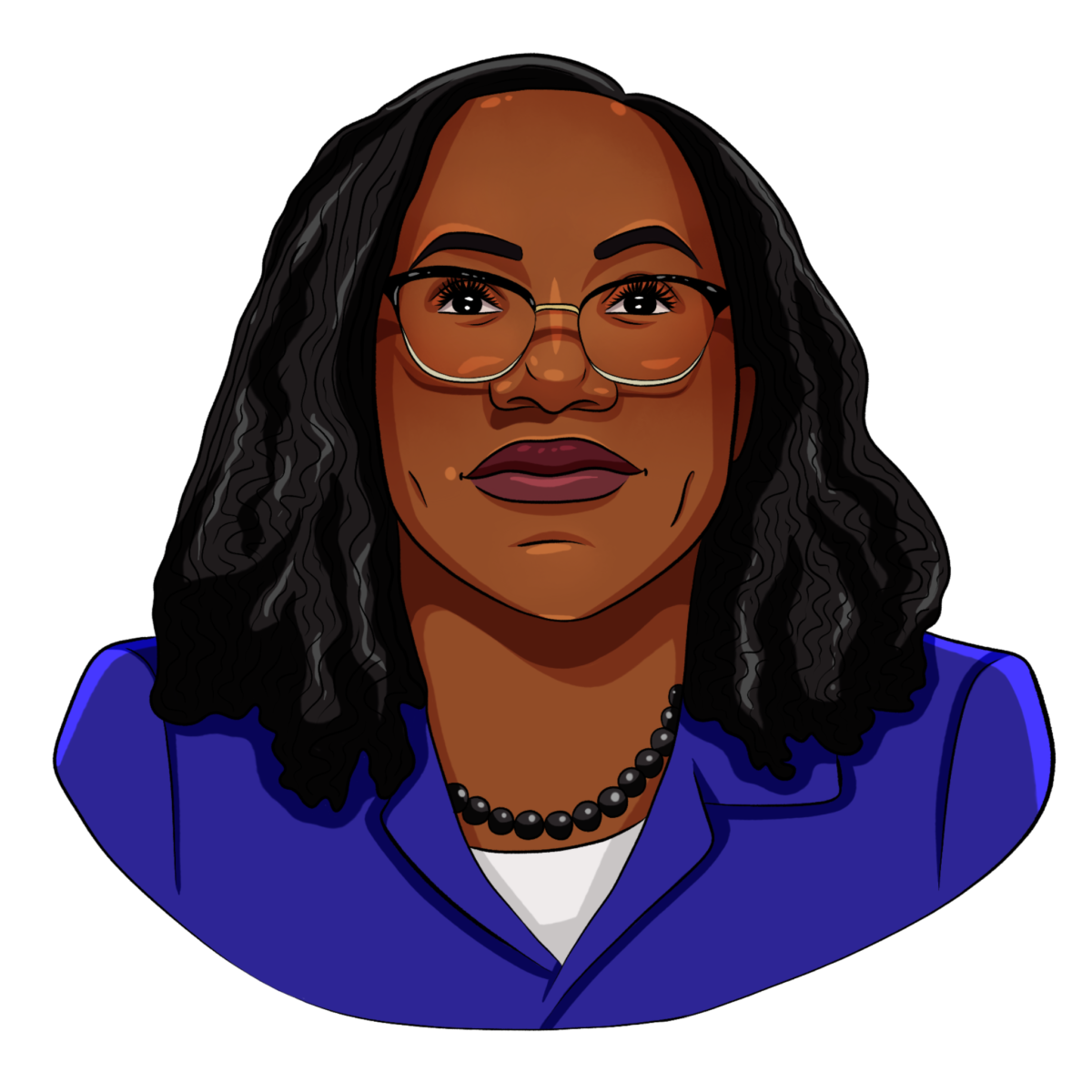On April 7, 2022, the United States Senate voted to confirm Judge Ketanji Brown Jackson to the Supreme Court, making her the first Black woman to serve on the high court. Despite being one of the most qualified candidates in history—she is the only candidate to have held the roles of Supreme Court clerk, sentencing commission, district judge, and public defender, for example—her hearing was marred by inappropriate questions and disrespectful antics from Republican senators, who attempted to undermine her qualifications, along with valid concerns about her past sentencing record.
Jackson graduated magna cum laude from Harvard University in 1992 and cum laude from Harvard Law School four years later. After graduation, Jackson went on to clerk for judges on the Massachusetts federal court, the U.S Court of Appeals for the First Circuit, and eventually the Supreme Court. After joining the U.S Sentencing Commision, she served as a federal public defender where she “won uncommon victories against the government that shortened or erased lengthy prison terms,” according to the Washington Post. Upon being sworn in, she will be the first and only Supreme Court justice to have been a public defender.
In 2009, she was nominated by then-President Barack Obama to serve as the Vice Chair for the U.S Sentencing Commision, and in 2012, became a judge on the U.S. District Court for the District of Columbia. In 2021, Jackson was nominated to serve on the U.S. Court of Appeals for the D.C. Circuit by President Joe Biden, who later nominated her to fill the vacant seat of Justice Breyer on the Supreme Court.
During the confirmation hearing, which took place from March 21 to April 7, Jackson was questioned in an unusual manner, particularly by Republicans. Several senators phrased their questions to discredit Jackson and mirror the current political climate and its disputes regardless of whether or not these specifics were relevant to her qualifications.
“Can you provide a definition for the word ‘woman’?” asked Senator Marsha Blackburn, a Republican from Tennessee, in light of ongoing discussions about trans rights. After Jackson stated that she’s not a biologist, Blackburn proceeded to berate Jackson, taking previously made quotes out of context as she made her closing remarks.
“Do you agree with this book being taught to kids that babies are racist?” questioned Senator Ted Cruz, a Republican from Texas. He then cited books written by various authors discussing critical race theory to scrutinize Jackson, despite her mild responses. Tucker Carlson, a Fox News host, boldly claimed that Jackson was only nominated because she is “tanner than Joe Biden,” while also harping over her LSAT scores.
Senator Lindsey Graham, a Republican from South Carolina, examined Jackson’s religion and faith with a fine-toothed comb, among many other points of extensive inquiry, while continually interrupting Jackson as she calmly responded to his questions.
Jackson faced questions and behavior that bordered on the absurd despite Graham’s apparent promise that her hearing would not be a “circus” like that of Brett Kavanaugh’s in 2018. Kavanaugh faced intense questioning from senators and the public over numerous allegations of sexual assault, which is considerably different than the microaggression that Jackson faced during her own appointment hearing. As the hearing came to a close, Graham and Senator Rand Paul intentionally violated the dress code, so they were not allowed to vote from the floor with everyone else, and instead voted from the Senate cloakroom.
Commentators were quick to call out this act and others before it as disrespectful and worse. “The racist, sexist mudslinging at Ketanji Brown Jackson is disgraceful” read a CNN headline.
Once confirmed, Jackson’s appointment to the Supreme Court was announced by Vice President Kamala Harris, the first Black woman to occupy that seat as well. Although progressives have demanded Harris be held accountable for her controversial criminal justice background, this was an undeniably historical moment.
But what does it really mean to be the “First Black Woman” in politics? At times, it seems as though the weight of this cross speaks more to how slowly times have changed, while exposing Black women to yet another avenue to receive racially charged and sexist attacks.
The Weekly interviewed local women in politics to get their take on Jackson’s appointment and share their experiences navigating positions of power in politics, government, and the spaces in between.
The Constitution, when it was initially written, didn’t account for people like me,” said Kina Collins, a young Black woman who is running against Congressman Danny Davis for his seat in Illinois’s 7th congressional district. She is the youngest Black woman in the history of the state to run for Congress; if she wins, Collins will be the youngest Black woman to ever be elected to Congress.
Born and raised in the West Side neighborhood of South Austin, and an alumna of Louisiana State University, Collins understands the needs of her communities in a way many other politicians do not.
“My background is in gun violence prevention and criminal justice reform work, and I also consider myself a public health advocate. I stepped into that work because, like many young people in the city of Chicago who grew up on the West Side and the South Side, I witnessed a murder up close and personal in my childhood neighborhood,” Kina said, “And I knew the shooter and the victim.”
Collins has a philosophy about the importance of intentional representations in places of power: true representation goes beyond identity politics. This need is demonstrated through the overlap in experiences that many Americans face regardless of race or gender. Gun violence is a prime example. Collins talked about how just as kids on the West Side of Chicago can tell stories about gun violence, so can “very affluent communities like Newtown, Connecticut, where second graders had mass shootings in their classrooms,” she said.
She’s disturbed by the fact that many of the people who hold the “power of the purse” don’t share experiences with the community members that are inherently affected by policy changes or lack thereof. “Some of these folks who are making these decisions, whether it’s legislating or allocating funding, have never even heard a gun go off,” Collins said.
In 2015, Collins joined young Black and Brown organizers in Chicago to organize direct actions around the murder of Laquan McDonald, a Black teenager who was killed by then-Chicago Police Officer Jason Van Dyke. The dashcam footage that showed the shooting was withheld from the public for nearly 400 days as then-mayor Rahm Emanuel and CPD attempted to cover it up. “We have to say unapologetically that excessive use of police force by way of guns is, in fact, gun violence,” Collins stated.
“Our direct action turned into electoral action,” Collins said. In light of the continued organizing and protesting, Chicago got a new mayor, a new state’s attorney, new City Council members, and a continued push for a federal consent decree. “We got an officer charged and convicted of murder,” Collins said, “Which hadn’t happened in, I think, about ninety-nine years in the Chicago Police Department.”’
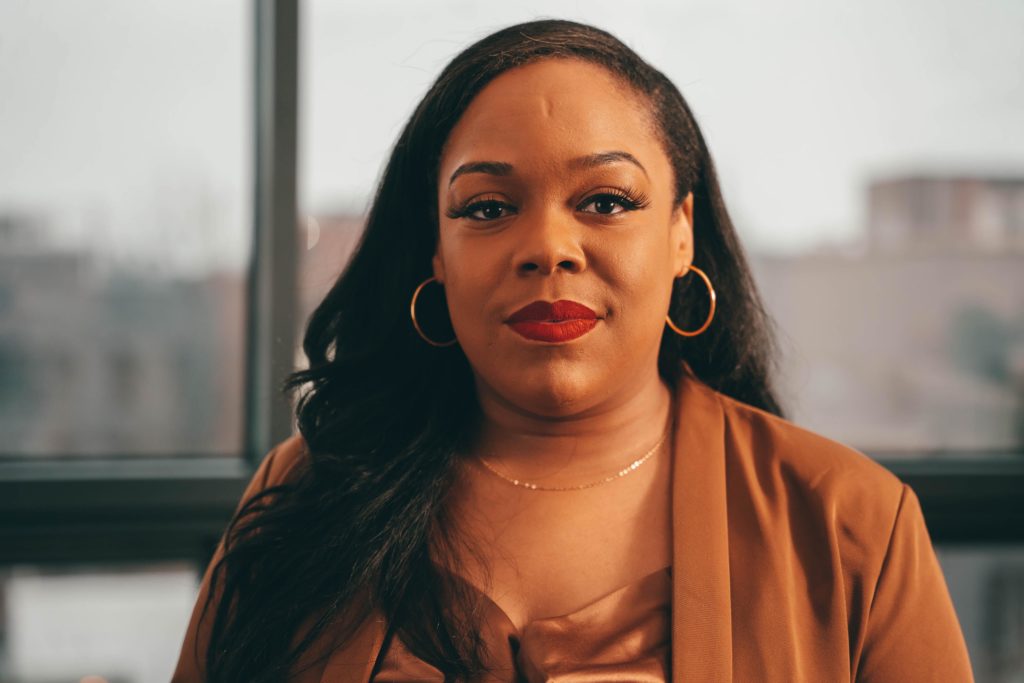
“I realized the power wasn’t just in the frontlines of the protests, it was in the public policy room,” she said.
In 2017, as an activist, Collins wrote her first piece of civil rights legislation; House Bill 5544, the Illinois Council on Women and Girls Act, which was then filed by state Representative Anna Moeller. The council created by the bill would advise the governor and state lawmakers on any public policy or funding that would directly impact women and girls. In 2018, the bill was amended to include transgender women and ensured the council was diverse in regards to gender identity.
“We can’t subscribe to the politics of leaving people behind,” Collins said. “My bill passed in the House, it passed in the Senate, and we forced [then-governor] Bruce Rauner to sign it into law.” The council is now Lieutenant Governor Julianna Stratton’s premier initiative. At times, it’s clear that no one fights harder for women than women themselves.
In 2020, Collins came in second place in a four-way race with Davis for the seat he has held since 1996, when she was five years old.
Collins watched the recent Supreme Court appointment hearings with mixed emotions. “The fact that [Jackson] was overly qualified for the position, one of the most qualified nominees to become justice of the highest court of the land, and she was being questioned by people who, in my opinion, don’t even have the qualifications to carry her briefcase,” she said.
The most disheartening and triggering aspects of Jackson’s hearing for Collins were the accolades she received for handling the disrespect with so much “grace.”
“That is mentally harmful to Black women, and Black women have had to hold that trauma for so many centuries—since we stepped foot here in the United States. That was very telling that people were applauding her ability to hold her pain instead of saying ‘we need a form of accountability to make sure that this never happens again,’” Collins said.
“It was hard to watch her have to be badgered with these questions that have absolutely nothing to do with the job… It was hurtful, I shed a few tears watching parts of her confirmation.”
“This is what violence looks like,” Collins said of the hearing, “Violence is not [just] when you punch somebody or pull the trigger, violence is when you have an intention to harm somebody… I think that this was just another form of structural violence that America got to see up close and personal.”
I actually had no interest in being in politics,” said Dr. Amara Enyia, a strategist, public policy expert, and former mayoral candidate. “But because I had worked in government, I could see clearly how the decisions were being made, the disconnect between decision makers and those who are affected by those decisions and policies. That really had a strong influence on my eventual journey into the political realm.”
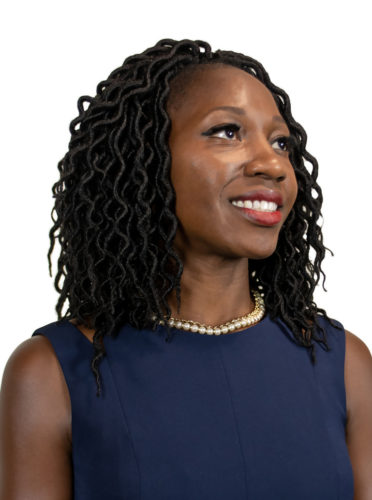
Enyia, who currently resides on the West Side, is the daughter of Nigerian immigrants. She’s proficient in her native tongue, Igbo, as well as Spanish, French, and Portuguese. An educated woman, Enyia holds bachelors degrees in Broadcast Journalism and Political Science, a masters degree in education, a law degree, and a PhD in Education Policy.
In 2019, Enyia ran for mayor alongside two other Black women: Cook County Board President Toni Preckwinkle and Lori Lightfoot, who became the first Black woman mayor of Chicago. The choice to run came from seeing unmet needs in her communities and deciding not to wait for someone to help when she could do so herself.
Enyia recalled being dismissed because of a problem similar to Kina Collins: her age. She was around twenty-seven when she received her PhD, and despite her qualifications, she still found elected officials and leadership positions seemingly discrediting her on account of her age and presumably her gender. “But it never deterred me,” she said.
She also noted how often community members are discredited because of their socioeconomic status. “We actually discount the legitimacy of people because they may be poor,” Enyia said. “There is a very powerful phenomenon that’s very troubling, where we [associate] morality, intellect, competency, with income.”
Enyia started to notice these misconceptions more when running for mayor. “‘How can you manage a city if you’re not a millionaire? How can you manage a city with this budget?’ What I would say [is], ‘Well, we’ve had millionaires as mayors for almost the entire history of the City, and still, we have a structural deficit and a financial mess’” she said.
For Enyia, representation goes beyond identity politics. “I’m more concerned with a person’s politics than their phenotype,” she said. “By that, I mean, we are at a time where we have Black mayors, we have Black police superintendents, we have Black attorney[s] general, we have Black state’s attorneys…”
But despite there being Black people, and Black women, in positions of power, some continue to perpetuate harm to Black communities. Enyia believes that shared experiences create empathy and trust.
Enyia joined the rest of the country in watching Jackson’s hearing. Foreseeing how the hearing would play out before a single word was said, Enyia still found herself shocked and disgusted with the way certain senators questioned Jackson.
“I’ve been there. I know. You could be the most qualified person in the world, but it’s not about your qualifications. There is this constant attempt to discredit and delegitimize,” she said. Like Collins, Enyia was uncomfortable with the celebration of Jackson’s ability to appear unbothered. “I don’t want Black women to now have to be put in this box where they cannot respond to blatant disrespect—blatant abuse, even.” she said.
“I feel like it just falls into that trope of Black women as the mule, Black women as the recipients of all these things, and ‘we’re so strong that we can just withstand.’ That can be quite harmful for Black women or really anybody.”
State Representative Lakesia Collins (no relation to Kina) has no desire to let the expectation of Black women to keep quiet hinder her. A former youth in the foster care system, Collins’s journey to politics and government was set apart from some of her counterparts. After being emancipated from the foster care system, she was attending community college when she got pregnant with her first child. Facing a need for stable income, Collins got her Certified Nursing Assistant certification and began working at a nursing home.
Collins became involved with her healthcare union, which opened the door for her to start learning more about policies and gain interest in politics. “I got tired of the same old politics, I felt that this was a time that we needed someone with lived experience,” she said. “Someone who comes from labor, [a] working class person needed to be in our government. So I stepped up to the plate to run.”
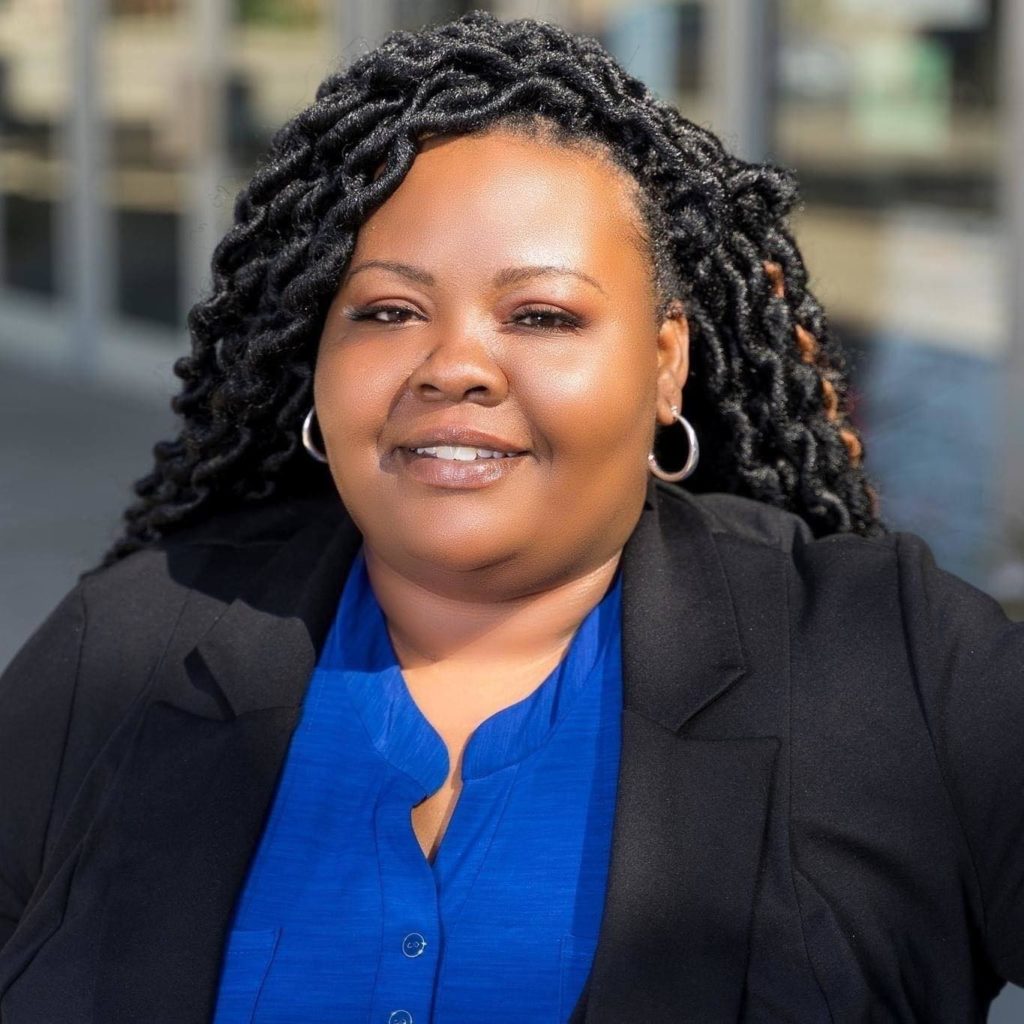
“No matter the title or position you hold,” Collins said, “Black women have to work three times, or more, harder than their counterparts.” Having faced disrespect from her colleagues, she admitted it is easy to feel powerless at times, calling the treatment of Black women in political spaces “disheartening.”
“I do belong here, and I have to keep reminding myself that I do belong here, I am good enough. That’s something that I think Black women in this space have to think about more often,” she said.
When faced with blatant disrespect, such as the kind Jackson contended with during her hearing, Collins sticks to one response: call it out. Unafraid to speak up regardless of if she receives support, Collins has noticed that when her white colleagues speak passionately about an issue, it’s seen as just that—passion. But if she uses the same zeal to speak up, let alone defend herself, it’s not perceived as positive. “The message I get from society is that it’s not okay for Black women to be passionate about anything,” she said.
Collins is also a single mother, for which she’s received unsolicited sympathy, as if it’s a handicap.
Lakesia Collins found Jackson’s hearing all too relatable. Looking on social media, she joined several other Black women in agreeing that the attacks were not only familiar, but unfair as well. Whether these Black women are elected officials, receptionists, legislative assistants, or any other occupation, she’s observed that this same storyline persists: “I feel a sense of ‘cool, it’s not just me,’ but I see it every day in my space, too.”
Collins sees the incessant questioning Jackson received as a display of white supremacy and privilege. “It’s the privilege of being able to think it’s okay to question someone’s qualifications when you know she’s qualified or overly qualified. For her to be the first Black woman, that said a lot,” she said.
For Collins, the appointment of Jackson to the Supreme Court is a blessing and a curse, as it is for every “first Black woman,” she said. The blessing is that this feat was witnessed in our lifetime; the curse is the looming pressure of “messing up” under this burning magnifying glass. Any mistake can be used as an excuse to say this phenomenal woman is, in fact, unqualified.
“That’s how I felt when I ran for this seat,” Collins said, “I didn’t think I was good enough. I didn’t think I would bring something different to my district. I knew that I would always be under this microscope, I knew that folks would always compare me to the folks that came before me. That’s stressful.”
In February, Collins found herself in an escalated situation when she motioned to remove nine Republicans from the chamber of the Illinois House for not wearing their masks. She saw this as neglectful and inconsiderate, especially toward representatives such as herself who have children at home. Some of Collins’s white male colleagues threatened her and cursed at her. Despite eventual reconciliation, she is still marred by the fact that anyone would think that behavior was acceptable.
Collins also felt their refusal to wear masks was disrespectful toward Speaker of the House Emanuel Chris Welch, who is the statehouse’s first Black speaker. Collins said he has remarkable leadership skills. She pointed out that he has encouraged an exceptionally diverse leadership team, and women make up the majority of the chamber. She reiterated that the disrespect was centered on the speaker, recalling that she’d heard many people agree something like this does not normally happen. “They’re only doing this because they’re testing him. It was evident that they were testing him.”
It was only women and Black men in the chamber that came to her defense in that moment, while other colleagues reached out after it transpired. In situations where non-Black women have been attacked, she’d seen more of her colleagues step in, but she wasn’t awarded that same protection. “[They didn’t] understand that in that moment, that was the perfect opportunity for anyone to say ‘this aint right,’” she said. Still, Collins is grateful that she had support from some, and she sees the positive in putting herself on the line. “The beating that I took for that, it did inspire other women. I tell every woman I’ve talked to, ‘Don’t be afraid to be who you are. Let your light shine, call it out for what it is. No matter what space you’re in, call it out,’” she said.
“If they’re uncomfortable, you’re doing something right.”
Ketanji Brown Jackson sits side-by-side with a long list of Black women who are, and have been, brave enough to set foot in a line of work dominated by white men, in a country that once did not consider them fully human, let alone fit to have a seat at the political table. In order to better understand the nuanced implications of her appointment, it’s important to consider the personal experiences of the women who stand at this same intersection of identity.
“Create your own tables, bring your own chairs, like Shirley Chisholm said,” Kina Collins advised young Black women who hope to operate in political spaces.
The late Shirley Chisholm is a matriarch of Black women in politics. In 1968, Chisholm, a New York native and the daughter of immigrants, became the first Black congresswoman in American history. In 1972, Chisholm made history again for both women and Black folks as she became the first Black person and woman to run for presidency in one of the two major political parties (she ran as a Democrat).
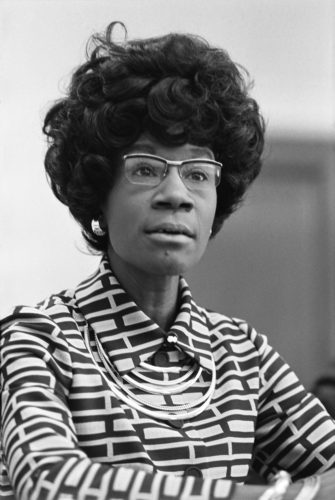
“Fighting Shirley,”’ as she was nicknamed, became a champion for racial and gender equity while introducing a notable amount of new legislation during her time as congresswoman. But all the fight in the world could only protect her so much; Chisholm experienced discrimination both from white counterparts as well as Black men, in the Congressional Black Caucus specifically, as she ran for president. “I have certainly met much more discrimination in terms of being a woman than being Black, in the field of politics,” Chisholm once said.
Chisholm was not allowed to participate in the highly anticipated televised primary debates, and her underfunded campaign was consistently ridiculed. “Being Black is definitely a handicap in the United States because racism has been very inherent in [our] institutions,” Chisholm said in a BBC interview.
Robert Gottlieb, a student coordinator for Chisholm’s presidential campaign, recounted organizing students in North Carolina and traveling with promotional items for distribution that read ‘Chisholm for President.’
“I took a plane to Raleigh, North Carolina. And I go to pick up my bags and the brochures and bumper stickers from the luggage carousel. And scrawled all over it was ‘go home n*****.’ That’s how the campaign began,” Gottlieb said.
Chisholm’s attempt at the presidency was more than just symbolic. On numerous occasions, Chisholm advocated for diversity in politics and seats of power across race, age, and gender, among other identities. Chilsom spoke to the need for representation as an avenue for true equality in a country that could barely understand why she believed she could win the election.
Chisholm spoke passionately about the reduction of Black people to ‘look how far you’ve come,’ which brings an important point for consideration: how good is a door forced open if it is a mere crack that is still too small for anyone else to fit through without struggle?
Similarly, hailing from the South Side of Chicago, Carol Moseley Braun made history when she was sworn into office in 1993. Not only was she the first Black woman to be elected to the Senate, she was just one of two Black senators in the country’s post-reconstruction history. In an interview with Jasmine Cannon, a film student at Northwestern University, Moseley-Braun said, “I’ve never been anything other than a Black female, so I see the entire world through those set of experiences… I hope that set of experiences allows me to give back to the world something unique and something different that it needs to have.”
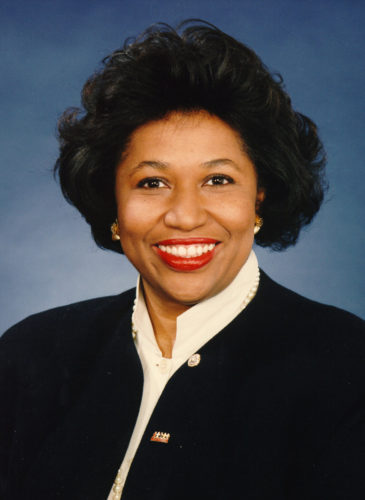
She attended Parker High School, more recently known as Paul Robeson, a school in Englewood that was closed in 2017. After high school, Moseley Braun received a bachelors in political science from the University of Chicago, and found her way to working for Harold Washington’s mayoral campaign, who went on to become Chicago’s first Black mayor. Moseley Braun worked as a prosecutor in the office of the U.S. Attorney in Chicago, and then in 1978, winning the election, she joined the Illinois State House of Representatives.
Colleagues referred to Moseley Braun as “the conscience of the House,” because of her dedication to equality. In 1984, she proposed a moratorium on the death penalty in Illinois. In a monumental case over political gerrymandering, Crosby v. State Board of Elections, Moseley-Braun sued her own party and the state she represented as she fought for Black and brown citizens.
After a decade serving on the Illinois House of Representatives, she was elected the Recorder of Deeds for Cook County, making her the first Black person to hold an executive position in this county.
To this day, Moseley Braun is just one of two Black women who have held a seat in the Senate; the second is Kamala Harris with a twenty-four year gap. In the U.S. Senate’s 233-year-long history, there have only been eleven Black senators.
“Absolutely, I experienced both racism and sexism, but you just keep one foot in front of the other, keep doing your best, [and] try not to get distracted,” Moseley Braun once said.
Chima Ikoro is the community organizing editor for the Weekly

